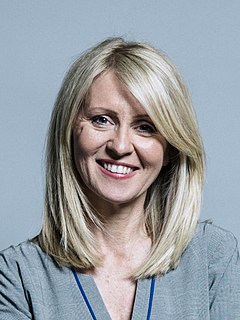A Quote by John McDonnell
The worry in Labour circles is that, when pressed, Gordon Brown instinctively moved to cut the benefits of the poor rather than upset businesses and the wealthy.
Related Quotes
Liberals in the US don't have great passions about Margaret Thatcher. Conservatives do. For all the worship that Ronald Reagan elicits in conservative circles in the US, I would venture that Thatcher did far more to reshape British society than Reagan did here. When I moved to Britain, the utilities were state-run. By the time I left, most of that was privatized. Thatcher had broken the miners' union, all but crushed the Labour Party, cut back the welfare state, even flirted with a poll tax. In the circles I ran in, Reagan was mocked as a childish dolt. Thatcher was despised.
The great question for our time is, how to make sure that the continuing scientific revolution brings benefits to everybody rather than widening the gap between rich and poor. To lift up poor countries, and poor people in rich countries, from poverty, to give them a chance of a decent life, technology is not enough. Technology must be guided and driven by ethics if it is to do more than provide new toys for the rich.
On the face of it, these look like bad times for Labour and for Ed Miliband's leadership. There seems to be no strategy, no narrative and little energy. Old faces from the Brown era still dominate the shadow cabinet and they seem stuck in defending Labour's record in all the wrong ways: we didn't spend too much money, we'll cut less fast and less far, but we can't tell you how.
We're wealthy people. We're sitting here in New York, Washington. We live in a fantastically wealthy country. We don't have to worry about food. We don't have to worry about clothing. We wore the same shirt. We don't have to worry about our safety. It's very easy for us to be environmentalists. It's very easy for me to be an environmentalist. It's very easy for me to care about making sure that we protect the forests and the whales, and all that stuff. It's very hard for someone who makes $1,000 a year or some who makes less than $1 a day to care about the environment.
































